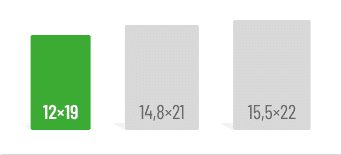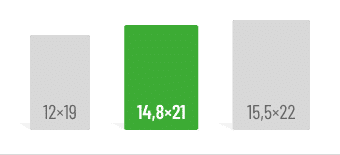First things first:
- The standard period of study for a degree programme is set in the examination regulations
- It guarantees students the right to complete their studies within this period.
- It can usually be exceeded by 1-2 semesters without any problems
- BAföG funding eligibility applies only during the standard study period.
What Is the standard study period?
Ever heard of the so-called “standard study period“? The standard study period for a program defines how many semesters it should take under normal conditions. It’s set in the examination regulations of each university.
What is the purpose of the standard study period?
In the past, if a course of study was removed from the university’s program, students could no longer complete their degree there. The standard study period was introduced as a safeguard for students, ensuring they could finish their studies within the specified number of semesters.
For universities, setting a time limit on degree completion is also practical, as extended study durations lead to higher costs, which they naturally want to avoid.
How long is the standard study period?
Before 2010, the standard programs in Germany were diploma and magister degrees, which typically took 9 semesters. To make universities more efficient and reduce study time, the Bologna reform introduced the consecutive Bachelor-Master system across many EU countries starting in 2010. Since then, most Bachelor’s programs last 6 semesters at universities or 8 at universities of applied sciences, while Master’s programs last 4 semesters. Abitur at 18, Bachelor’s by 21, and Master’s by 24—that’s the theory, anyway. But how realistic is that? Looking at the numbers, it’s clear that was a bit optimistic.
How many complete their studies within the standard study period?
Worried you’ll need more time than planned? Don’t panic—you’re not alone! Back in 2012, almost 40% of graduates finished within the standard time. But ten years later, only about one-third manage to complete on time. Most students need an additional 1-2 semesters.
A closer look by type of degree shows a clear picture: almost 90% of students at universities of applied sciences finish within the standard time, but at universities, only around 20% of Bachelor’s and Master’s students do. This difference is due to the structure and concept of the two types of institutions. While universities of applied sciences offer a clear study plan, including a practical semester, at universities, students are free to schedule their own lectures, seminars, and exams. This flexibility makes it easier for things to get delayed or postponed.
Overall, the number of students exceeding the standard time has increased, but with only 1-2 extra semesters, you’re still well within the average. You don’t need to worry about graduating, except regarding BAföG benefits.
Degree programmes with a different standard study period:
Law (state exam): 9 semesters plus 2 years of traineeship
Teaching: 7-9 semesters plus 2 years of traineeship
Medicine: 12-13 semesters
What happens if the study period is extended?
There are many reasons for extending the period of study:
- Financing your studies (part-time job)
- Taking a leave of absence
- Studying abroad
- Internships
- Full Seminars
- Illness
- Failed exams
- Family bereavement/care responsibilities
- Voluntary work (e.g., student council)
- Pregnancy
- and so on
Most universities allow up to 4 extra semesters without a problem. After that, the program is considered extended, and your university can charge additional fees or even disenroll you. You’ll need to provide reasons for the extension, but the “hardship clause” allows for extra time in extraordinary circumstances.
For students with BAföG eligibility, funding only applies during the standard study period for your program. When this period ends, so does your support. Exceptions are made in cases of illness, parental leave, or failed exams. In these cases, contact the BAföG office directly.
Do I have a chance on the job market if I take longer?
Taking extra time doesn’t necessarily hurt your career prospects. Employers usually consider more than just study duration when hiring. In fact, study abroad and practical experience can even be an asset.
Sources:
- Statista – Graduates Standard Period of Study 1
- Statista – Graduates Standard Period of Study 2
- Statista – Average standard period of study in Germany
- Statistics on Bachelor’s Degree in Germany
- Statista – Duration of studies of first-time graduates.
- Statista – University Degrees Standard Period of Study
- Bologna Process
- Bologna reforms
Do you like our magazine?
Then sign up for our newsletter now!







